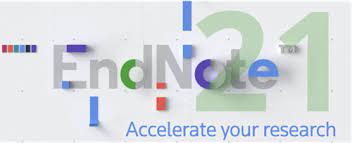Championing Inclusivity: NWU Librarians celebrate and advocate for Disability Rights
In celebration of Disability Rights Awareness Month, NWU librarians, Ms Dina Mashiyane and Ms Lindi Mahlangu participated in two events aimed at enhancing awareness and enlightenment on the aspect of inclusion for people with disabilities.
The National Library of South Africa, the South African Library for the Blind, and Tape Aids for the Blind joined forces to host an enlightening webinar on December 7, 2023. Among the esteemed speakers was Ms. Mashiyane, a dedicated advocate for accessibility in library and information services. Her presentation, titled “Tabling Guidelines, Best Practices, and Challenges for Accessible Library and Information Services for People with Print and Other Disabilities,” shed light on crucial aspects of making libraries more inclusive.
Ms. Mashiyane’s presentation delved into the essential guidelines and best practices for creating library spaces that cater to individuals with print and other disabilities. She highlighted the challenges faced by those who seek information in traditional formats and emphasized the importance of adopting innovative solutions to bridge the accessibility gap.
The core message of Ms. Mashiyane’s talk was clear: libraries play a pivotal role in disseminating knowledge, and it is imperative that these spaces are accessible to everyone, regardless of their physical abilities. She urged libraries to embrace technology, implement user-friendly design principles, and collaborate with organizations dedicated to supporting individuals with disabilities.
In addition, Ms Lindi Mahlangu attended the launch of the ASSAf Inclusivity Initiative: Gender Equity and Persons with Disabilities on December 8, 2023, where different industry leaders gathered with a shared commitment to identify actionable solutions that will propel implementation towards a more inclusive and equitable future. Ms Lindi Mahlangu, joined in as one of the attendees to be enlightened on best practices to implement in providing and enhancing inclusive spaces, resources, and facilities.
At the launch, Prof. Olubukola Babalola emphasised that in pursuit of equity, innovation emerges as a powerful catalyst, capable of dismantling traditional obstacles and forging new inclusive pathways. It’s important to recognise that innovation extends beyond technological advancements; it encompasses the reimagining of our approaches, systems, and mindsets. It is a transformative force that ensures every voice is heard, and every talent is recognised. The collective efforts are directed towards building a society that is not bound by barriers but rather thrives on inclusivity.
In designing and delivering services for library users, it is essential to cultivate an environment that caters to the diverse needs of individuals with disabilities, ensuring they can fully benefit from what is offered. This inclusivity extends to event planning, where careful consideration should be given to ensuring that all everyone can actively participate. For example, during workshops and training sessions, the inclusion of a sign language interpreter can be considered to accommodate individuals with hearing impairments, ensuring they can derive full benefits from the programs provided.
Embracing inclusivity also involves selecting venues that are accessible to everyone, regardless of their disabilities, and creating spaces that are accommodating and welcoming. The principle of inclusivity also extends to the library collection, which should be curated to suit the needs of every student, irrespective of their abilities.
Ms Mahlangu further states that libraries can also embark in the collaborative effort with relevant institutional disability units/departments, to celebrate d and raise awareness of disability related aspects.
“It is a human right of everybody to be accommodated. All people should be valued as members of a barrier free society and treated with dignity and respect“.- Dr Anlia Pretorius
The journey towards creating an inclusive and equitable library environment is marked by a commitment to accessibility, awareness, and diversity. Together, we build a future where inclusivity is not merely a goal but a reality for all.
By Lindi Mahlangu and Dina Mashiyane





















